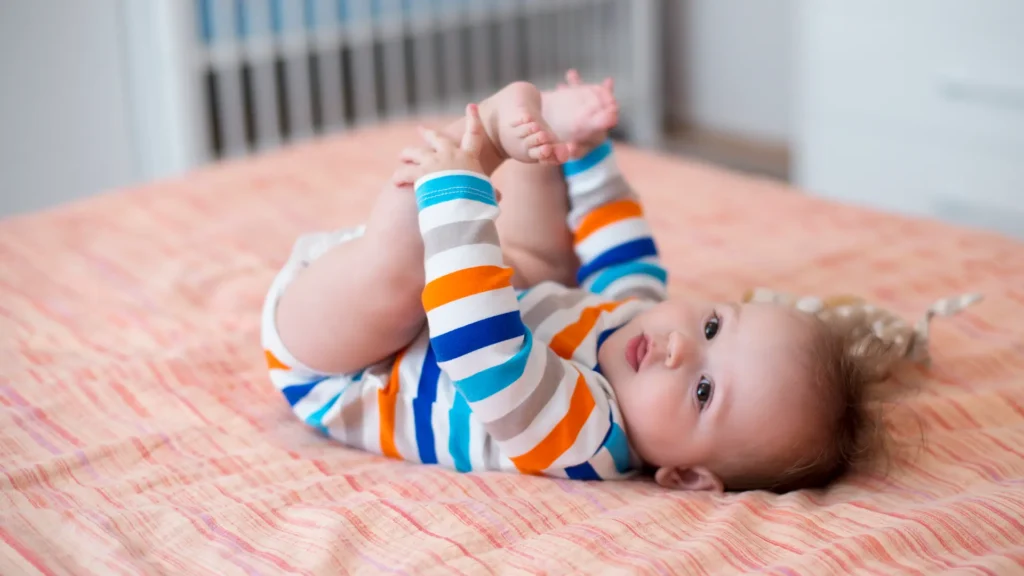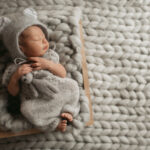Watching your baby grow and hit new baby milestones is one of the most rewarding experiences for any parent. From the first smile to the first step, infant development milestones are a clear reflection of how your little one is growing both physically and mentally. Understanding baby growth milestones can help you celebrate these important moments while also preparing for what’s next.
In this article, we’ll explore key baby milestones, break down baby stages, and share insights on how to navigate the exciting journey of your baby’s first year and beyond. We’ll also highlight some important newborn milestones and early childhood milestones, offering guidance on what to expect and when.
What Are Baby Milestones?

Baby milestones are specific skills or behaviors that most babies achieve within a certain age range. These milestones track your baby’s progress in various areas such as motor skills, language, social interactions, and cognitive development. Though each baby grows at their own pace, understanding these stages will give you a general idea of what to expect and when.
Different Types of Baby Milestones
Milestones fall into different categories, such as:
- Physical Milestones: These involve motor skills and physical growth, like rolling over, crawling, sitting up, and walking.
- Cognitive Milestones: Babies develop the ability to think, understand their environment, and solve problems.
- Language Milestones: Babies start from cooing and babbling to eventually saying their first words and forming sentences.
- Social and Emotional Milestones: This includes babies developing the ability to connect with others, express emotions, and respond to social cues.
Tracking baby developmental stages can be exciting for parents, but it’s important to keep in mind that every baby is unique. Some might hit these milestones early, while others take their time.
Baby Development Stages in the First Year

The first year is the most transformative when it comes to milestones in baby’s growth. From the moment your baby is born, they begin rapidly learning new skills. Let’s break down the baby stages month by month so you can know what to expect.
1 Month Old: The First Glimpse of Growth
At this age, your baby is still adapting to the world outside the womb. Development is centered on basic survival skills.
- Physical Milestones: At 1 month, babies can briefly lift their head while lying on their tummy. Although they can’t move much, they start reacting to light, sound, and touch.
- Cognitive Development: Babies begin recognizing faces, especially their primary caregivers, and they will start to respond to familiar voices.
- Language Milestones: At this point, your baby may start cooing or gurgling. These are the first sounds babies make to communicate.
3 Months Old: Social Smiles and More Control
By 3 months, your baby is gaining more control over their body and is ready to interact more with the world around them.
- Physical Milestones: Babies can hold their heads up without support and may start reaching for objects. Their motor skills are improving as they move their arms and legs more freely.
- Cognitive Development: Babies start tracking objects with their eyes and may even begin recognizing faces and familiar sounds.
- Language Milestones: Babies will start to make more varied cooing sounds, laying the foundation for speech development.
6 Months Old: Sitting Up and Exploring
Around 6 months, babies start becoming much more active, developing stronger muscles and gaining new abilities.
- Physical Milestones: Many babies can sit up with support or may even be able to sit unaided. Rolling over from front to back or back to front is a common milestone at this stage.
- Cognitive Development: Babies may begin to understand cause and effect (e.g., shaking a rattle makes noise) and develop a curiosity about the world around them.
- Language Milestones: At 6 months, babies will often start babbling, combining sounds like “ba-ba” or “da-da.”
9 Months Old: Crawling and Communication
By the time your baby reaches 9 months, they are becoming more mobile and expressive.
- Physical Milestones: Crawling typically begins between 8 and 10 months. Babies will also start to develop their pincer grasp, using their thumb and finger to pick up small objects.
- Cognitive Development: Babies understand more about their surroundings and can begin looking for hidden objects, showing a growing awareness of object permanence.
- Language Milestones: By now, babies may start saying words like “mama” or “dada” and begin responding to simple commands like “no.”
12 Months Old: Walking and First Words
The first year culminates in some of the most exciting baby milestones. By 12 months, your baby is likely to have made significant progress in terms of physical and cognitive development.
- Physical Milestones: Many babies are starting to walk or at least stand with support. Others may still be crawling or cruising along furniture, but they’re becoming increasingly mobile.
- Cognitive Development: By this stage, babies will begin exploring their environment more thoroughly, figuring out how things work, and solving simple problems.
- Language Milestones: A baby’s first words may emerge around the 12-month mark. Your little one might also begin to understand simple questions and commands.
Key Baby Milestones to Expect

Understanding key baby milestones in the first year is crucial for tracking your baby’s development. These milestones help you assess your baby’s progress and can also indicate if there’s any delay in reaching certain skills. Here are some of the most significant milestones to watch for:
First Social Smile and Eye Contact
One of the first major newborn milestones is when your baby makes their first social smile. Typically appearing around 6 to 8 weeks, this smile is a response to a caregiver’s face and marks the beginning of emotional bonding.
Rolling Over and Reaching for Objects
At around 4 to 6 months, babies typically roll over from front to back and may start reaching for toys. These baby development stages are key indicators of physical growth and motor skills.
First Word and First Steps
Your baby’s first milestones that involve walking and talking often occur between 9 and 12 months. Many babies start walking independently around their first birthday, and some will say their first word around the same time.
Milestones in Baby’s Growth After the First Year

Once your baby hits their first birthday, the growth and baby developmental stages continue. The second year of life is marked by early childhood milestones, where babies transition into toddlers. Here’s what to expect in the second year:
13-18 Months: Independent Exploration
During this stage, your baby will likely become more mobile and independent. They may take their first unassisted steps, and their vocabulary may expand as they start saying a few more words. They might also begin to show more interest in playing with other children.
19-24 Months: Language Explosion and Increased Social Skills
Around the age of 2, babies experience what’s known as a language explosion, rapidly expanding their vocabulary and starting to form simple sentences. Social skills are also improving as they begin to play alongside other children and express emotions more clearly.
Early Childhood Milestones: Beyond Babyhood
While the milestones in baby’s first year are exciting, your child will continue to achieve new milestones throughout early childhood. From developing complex motor skills like running and jumping to mastering cognitive skills like problem-solving and imaginative play, the early years are crucial for your child’s development.
Physical Milestones: Running, Climbing, and Jumping
By age 2 or 3, most toddlers can run, jump, and climb with increasing confidence and coordination. These motor skills will continue to improve as they get older.
Cognitive and Language Milestones: Solving Problems and Conversing
By age 3, your child will likely be able to solve simple puzzles, follow multi-step instructions, and engage in short conversations. Their language abilities will continue to expand, and they’ll use more complex sentences to express their needs and thoughts.
Conclusion: Celebrating Baby Development Milestones
As parents, celebrating baby milestones is one of the most rewarding parts of the journey. From the first smile to the first step, these moments signify your baby’s growth and development. Remember that every baby develops at their own pace, so while milestones provide helpful guidelines, there’s no “right” timeline. Whether it’s newborn milestonesor early childhood milestones, each stage of your baby’s life is special.
By understanding the baby developmental stages and tracking the key milestones, you’ll be better equipped to support your baby’s growth and development. Keep nurturing your baby’s curiosity and love of learning as they reach each new milestone in their journey.




Very useful thanks! 😊
You’re welcome 😇